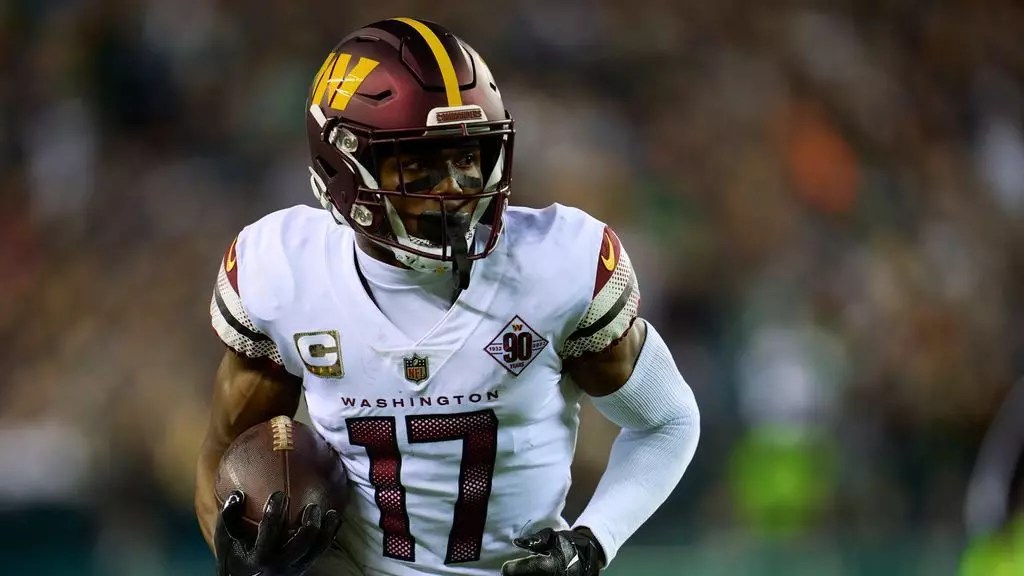In the high-stakes, profit-driven universe of the NFL, the notion that a player’s trade request is merely “business as usual” is a dangerous oversimplification. While coaches like Dan Quinn attempt to downplay Terry McLaurin’s trade request as part of “normal business,” this perspective inadvertently glosses over a deeper, more troubling trend—namely, the erosion of loyalty and trust that once anchored professional sports. Treating these acts as routine neglects the emotional toll on athletes and the long-term damage to team cohesion. When players see their loyalty devalued, they may respond by prioritizing personal gain over team goals, setting a precedent that promotes short-term thinking at the expense of organizational integrity. As fans, we must recognize that these transactional mentalities threaten the fundamental fabric of team sports—that of camaraderie, mutual respect, and shared purpose.
The Myth of the Business Side as Justification
Quinn’s assertion that players today are more aware of contracts and recognize the business side as a natural element of professional sports dismisses a crucial reality: athletes are human beings, not just commodities. Insisting that trade requests are a “normal” aspect of business minimizes the emotional and psychological impacts involved. McLaurin’s case exemplifies the tension between personal ambitions and institutional commitments. While the league informs us they’re solely focused on winning games, the underlying message subtly endorses a transactional approach that encourages players to see their value purely in monetary terms rather than as integral parts of a team. This mentality risks transforming locker rooms into marketplaces where loyalty is secondary to individual bargaining power. Such dynamics threaten to diminish the esprit de corps that makes team sports compelling.
The Danger of Neglecting Player Loyalty and Mental Well-Being
In an era where negotiations are framed through the lens of market value and contractual endpoints, players like McLaurin face mounting pressures that can eclipse their love for the game. With the NFL’s emphasis on making the most lucrative deals, players increasingly see their careers as fleeting opportunities for financial security—ultimately fostering an environment where loyalty to a team becomes secondary. McLaurin’s trade request, coupled with his injury rehab and autograph sessions, underscores a nuanced reality: players are caught between their personal aspirations and their responsibilities to teammates and fans. If organizations persist in dismissing these human elements and framing loyalty as a commodity, they risk alienating players who, like McLaurin, have been genuine team-oriented contributors. The emotional and mental health of players is sacrificed on the altar of profit, resulting in fractured teams and diminished fan engagement.
The Long-Term Implications for Franchise Culture
Allowing trade requests to be dismissed as mere business risks cultivating a culture of transient loyalty, where players hop from team to team seeking the highest bidder. This commodification of talent deprives a franchise of stability and deep-rooted identity. For a team like Washington, with McLaurin’s productive track record, this signals a dangerous shift—if loyalty is simply a temporary state, then the foundation of team building crumbles. The absence of genuine commitment from key players can foster a toxic environment where trust erodes, and younger athletes learn that loyalty is negotiable. Moreover, fans, who invest emotionally and financially into their teams, deserve to see athletes who value their shared history and identity. Disloyalty, disguised as a business decision, ultimately undermines the very spirit of competition and community that makes football more than just a game.
The Need for a New Perspective on Sports Industry Ethics
It is high time for the NFL—and professional sports in general—to reevaluate how they approach player-team relationships. While business considerations are undeniably part of the equation, they should not become the sole lens through which we interpret these interactions. Loyalty and mutual respect must be prioritized to preserve the integrity of the sport. For players like McLaurin, a knee-jerk framing of trade requests as standard practice risks perpetuating a cycle that undervalues their intangible contributions—the leadership, community standing, and sacrifices that define their roles beyond stats. The league must recognize that cultivating a culture of loyalty benefits everyone: players, teams, and fans alike. Real change demands acknowledgment that athletes are more than market entries—they are vital threads woven into the fabric of a sport that claims to elevate human ideals, not erode them.

